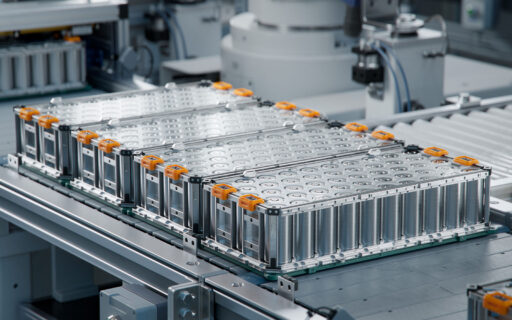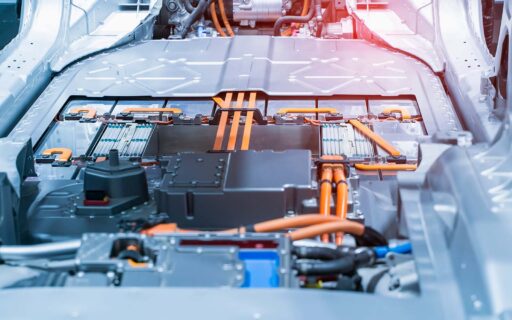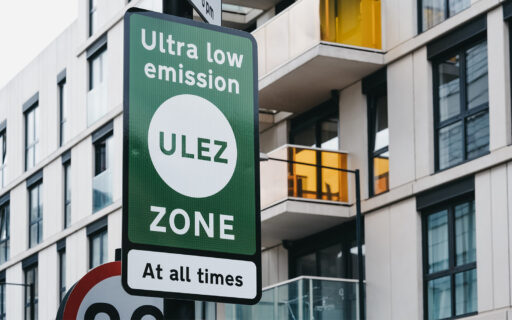Knauf Automotive
Electromobility
Electromobility - what it is and how it's developing in Poland and around the world
Electromobility is the future of the automotive industry – there is no doubt about that for most people involved in the sector. It is essential not only to reduce the negative impact of car traffic on the environment, but also to reduce the production and operating costs of electric vehicles compared to cars with combustion engines.
Latest articles
The development of electromobility – definition, functions and benefits
E-mobility offers numerous benefits – both for consumers and the environment. What exactly does this term mean and what is its significance for the automotive sector?
Definition of electromobility. Why are electric vehicles so important to the automotive industry?
Electromobility, also known as e-mobility, refers to the use of electrically powered vehicles. The current development in this field is mainly focused on passenger cars, but there are also new, ecological solutions for buses and even trucks. Electromobility covers a wide range of issues – from design and production to the sale and use of electrically powered vehicles. The term also refers to the technologies used and the infrastructure required to operate these vehicles, such as charging stations.
It is worth noting that the growing electromobility market has proved resilient to the threats posed by the COVID-19 pandemic, which significantly weakened most sectors of the market. Despite social and economic problems, interest in electric vehicles has been continuously growing. This is due not only to the innovativeness of the proposed solutions, but also to the increasing public awareness of climate change. Developing e-mobility may turn out to be crucial for limiting the negative impact of human civilization on the natural environment.
THE EUROPEAN AUTOMOTIVE INDUSTRY BELIEVES IN ELECTRIC CARS – THE BENEFITS OF ELECTROMOBILITY DEVELOPMENT
The total value of the electric car market had already reached USD 23.33 billion in 2020. According to analysts at Research and Markets, this figure is set to rise to 37.22 billion by 2023 – an increase of 60% in just three years.
Several factors create such favourable conditions for development. One of them is the European Union’s environmental policy, which strongly supports electromobility solutions. The aim is to reduce the amount of environmental pollutants emitted by the use of traditional combustion engines, thus slowing down the degradation of the natural environment. Apart from producing harmful substances in the process of fuel combustion itself, such engines also contribute to greenhouse gas emissions. With the use of modern electric motors, it is possible to reduce emissions of carbon dioxide and ozone, among other things. Thus, a higher proportion of electric cars in the total number of vehicles has a direct impact on air quality, which significantly increases the comfort of life, especially in urban spaces.
What is more, electric transport not only contributes to reducing the negative impact of the automotive sector on the environment, but it also represents an opportunity to reduce costs. Thanks to the development of electromobility, we can expect to save on individual transport costs when using electrically powered vehicles. This reduction in expenses is thanks to lower energy consumption, due to the greater efficiency of electric motors in comparison to combustion engines. In addition, the end customer can avoid the need for regular, costly repairs and replacement of consumables such as oil, filters and other similar parts.
ELECTROMOBILITY DEVELOPMENT DEPENDS ON AVAILABLE INFRASTRUCTURE
Electromobility undoubtedly has many important advantages which will prove crucial for the environment and society in the years to come. Experts predict that the strong development of electromobility is only just beginning and will continue for the next several years. It is worth noting, however, that the profitability of using vehicles with this type of drive is largely dependent on the availability of appropriate infrastructure, which includes, among other things, charging stations. This factor affects the convenience of driving an electric car, which in turn has a significant impact on the dynamics of further development of this sector. Environmental regulations of the European Union may accelerate the construction of the required infrastructure by imposing an obligation on developers and building owners to install charging stations.
SUPPORTING THE DEVELOPMENT OF E-MOBILITY – THE INNOVATIVE MATERIALS USED BY KNAUF INDUSTRIES
The popularisation of electric drives may result in a drop of up to 20-30% in the production costs of passenger cars. This is due, among other things, to the use of innovative materials such as expanded polypropylene (EPP) in the production of Knauf Industries’ solutions.
Components made using EPP can find a wide range of applications in vehicle construction. Due to the high degree of formability, combined with strength and low weight, these components can take various shapes and offer a wide range of technical parameters. They are used, among other things, for thermal and acoustic insulation; they are also used as filling for headrests, seats or doors in cars. The material can also have an impact-absorbing function. In the “clean mobility” sector expanded polypropylene is also used to extend the life of batteries.
Check out our solutions for battery pack
Knauf Industries is a plastics processing company with extensive experience in managing the production of components from materials such as EPP. Engineering expertise is an essential part of the automotive production process – through proper preparation and strict process control, even the most demanding technical requirements can be met. The high level of production makes it possible to produce parts that are perfectly tailored to the needs of electric vehicles, which contributes to the development of electromobility.


